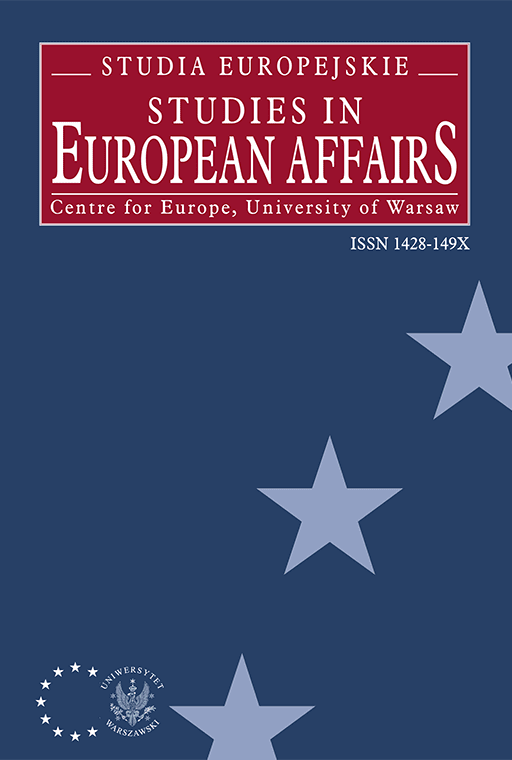
ISSUE: 2/2010
- Volume 54
- Number 2
- 2010
Subscribe NEWSLETTER
Studia Europejskie –
Studies in European Affairs
ISSN: 1428-149X
e-ISSN: 2719-3780
License
Articles published in the journal are under a Creative Commons Attribution – Non Commercial – No Derivatives 4.0 International License
Konflikty jurysdykcyjne w sprawach karnych: propozycja rozwiązania w Unii Europejskiej
Jurisdiction-related conflicts in criminal matters: proposal for a solution in the European Union
Abstract
The main problem discussed in the article is the Framework Decision on prevention and settlement of conflicts of jurisdiction in criminal proceedings, adopted by the Council of the European Union – Justice and Home Affairs on 1 December 2009. The measures provided for in this instrument aim at preventing situations where the same person is subject to parallel criminal proceedings in different EU Member States in respect of the same facts, which might lead to judgements being rendered in such proceedings in two or more countries. It therefore seeks to prevent an in fringement of the “ne bis in idem“ principle. The background for the analysis of provisions of the FD includes the origin and consequences (legal, political, practical, etc.) of conflicts of jurisdiction in criminal cases. The author argues that the FD should be regarded as one further step leading to establishing mutual recognition within the European Union. Member States are required to consider legislation on conflicts of jurisdiction, with a view to in crease efficiency of prosecutions while guaranteeing proper administration of justice, so as to complete the comprehensive program me of measures to implement the principle of mutual recognition of judicial decisions in criminal matters. Certainly, measures provided in this FD require so me degree of trust and confidence among in vestigative and pro secuting authorities of Member States.
Language: Polish
Pages: 135-154
How to Cite:
Harvard
Płachta, M. (2010) "Konflikty jurysdykcyjne w sprawach karnych: propozycja rozwiązania w Unii Europejskiej". Studia Europejskie – Studies in European Affairs, 2/2010, pp. 135-154.